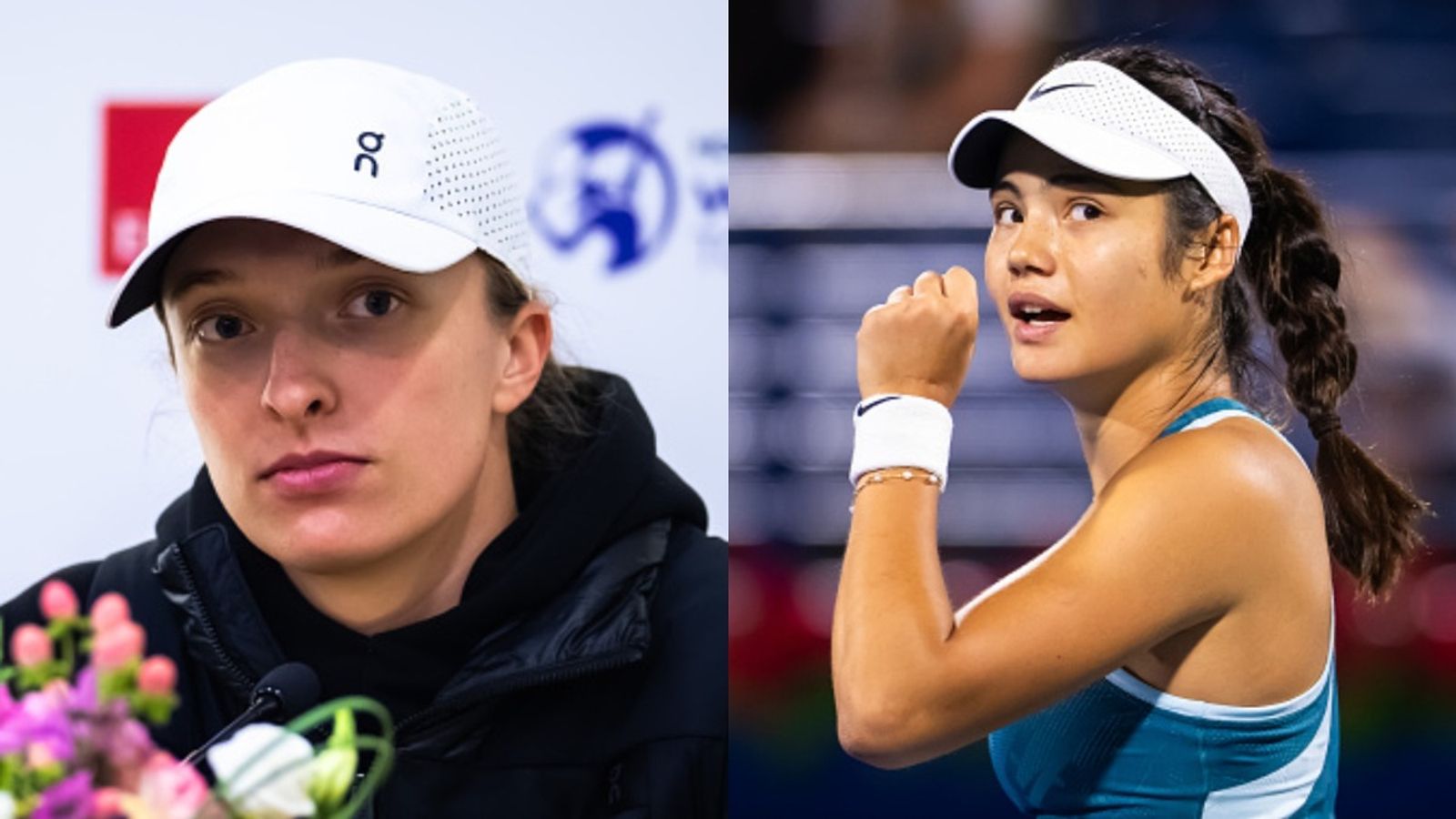Five-time Grand Slam champion Iga Swiatek recently ignited debate after addressing a troubling security breach involving Emma Raducanu at the Dubai Duty Free Tennis Championships. While Swiatek extended solidarity to the British star, she also spotlighted broader concerns about player safety at tournaments. The World No. 2 stopped short of divulging specifics in her initial remarks but hinted at systemic gaps that demand urgent attention.
Her cryptic yet pointed statement—“WTA banned this person”—has since become the focal point of a heated conversation about accountability and protection in professional tennis.
Iga Swiatek backs Emma Raducanu, demands stronger safeguards
When Emma Raducanu stepped onto Court 2 in Dubai for her match against Karolina Muchova, few anticipated the off-court drama that would overshadow her performance. Just two games in, Raducanu grew visibly unsettled, prompting a swift intervention from officials. A spectator exhibiting “fixated behavior”—previously spotted approaching her in a public area—was ejected and barred from all WTA events pending further review. The incident rattled the 2021 US Open champion, who later thanked fans for their support, calling it a “difficult experience” but praising Muchova’s sportsmanship.
Enter Iga Swiatek. The Polish star, known for her candor, didn’t mince words when addressing the situation.
“I’m sure it must have been tough for Emma,” she acknowledged, before dropping the bombshell quote: “I know the WTA banned this person from going on-site anywhere, to any tournament. So, I guess the reaction was pretty solid.” While commending the tour’s decisive action, Swiatek stressed that safeguarding athletes isn’t merely a reactive task—it’s a fundamental duty. “It’s WTA’s kind of responsibility to keep us safe, for that environment to be safe for us,” she asserted, drawing parallels to her own unnerving encounter at a 2022 charity event in Poland.
Swiatek’s remarks peeled back the curtain on an often-overlooked reality: even elite players aren’t immune to invasive fan interactions. Her call for vigilance resonated with peers like Mirra Andreeva, who recounted receiving violent online threats as a 14-year-old, and Elena Rybakina, who labeled Dubai a “second home” but conceded that crowds can be unpredictable. Yet Iga Swiatek’s focus remained on systemic change.
She urged players to trust their instincts, stating, “A player will know when it’s too much. Everybody has a different limit.”
The WTA’s swift ban of the individual in question underscores its zero-tolerance stance, but Swiatek’s critique raises deeper questions. Is removing problematic spectators enough? How can tournaments preempt such breaches? While Dubai organizers have earned praise for their security measures, this incident—and Iga Swiatek’s fiery commentary—serves as a stark reminder: in an era where athletes’ lives are increasingly scrutinized, their safety must never be negotiable.
As the Dubai Championships celebrate their 25th anniversary, Emma Raducanu’s ordeal and Swiatek’s outspoken response have shifted the spotlight from serves and volleys to a far more pressing rallying cry: protection over protocol, action over apology.


